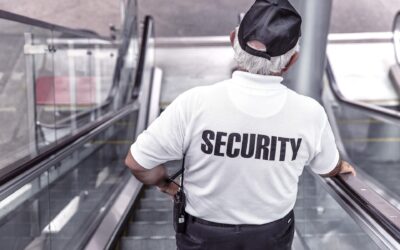When it comes to providing a safe and nurturing environment for students, there is no compromise. One of the crucial aspects of ensuring this safety is conducting regular DBS (Disclosure and Barring Service) checks for school staff members. DBS checks help schools make informed decisions about who they hire and allow parents to feel confident in entrusting their children to the school’s care.
In this blog, DBS Checks Online explores the significance of DBS checks in schools and discusses how often these checks should be renewed for different school staff members to maintain a secure educational environment.
Understanding DBS Checks
DBS checks, formerly known as CRB checks, are a fundamental part of safeguarding children and vulnerable adults. These handy background checks reveal an individual’s criminal history, including spent or unspent convictions, cautions, reprimands, and warnings, providing schools with critical information to assess their suitability for employment in a school setting.
Not all roles within a school require a DBS check. For example, a gardener who looks after the school fields over the weekend would likely not need a DBS check. Individuals in positions that involve regular contact with students likely necessitate this vetting process, as someone with a history of violence, sexual assault, or other criminal activities may not be suited to the education sector.
What DBS Check Do School Staff Need?
Because ensuring the safety of children and youths is crucial for any educational organisation, everyone who will interact with students should go through an Enhanced DBS Check. This includes teachers, teaching assistants, supply teachers, volunteers and contractors.
Caretakers and cleaners may have access to school premises when students are not present. While these roles might not require an Enhanced DBS check with barred lists, Standard DBS Checks could be required to ensure there are no relevant criminal convictions.
It’s important for schools to carefully assess the roles and responsibilities of each staff member to determine the appropriate level of DBS check required. Enhanced DBS checks with a Children’s Barred List check are the most extensive criminal record checks and provide the best peace of mind for whoever is involved.
DBS Checks & Criminal Record Checks
Why Are DBS Checks Necessary?
- Child Safety: The primary reason for DBS checks in schools is to ensure the safety and well-being of students. By screening potential employees and volunteers, schools can identify individuals who may pose a risk to children’s safety.
- Legal Requirement: In many countries, including the UK, conducting DBS checks is a legal requirement for schools. Adhering to these regulations not only safeguards students but also protects the reputation of the school.
- Parents’ Trust: Regular DBS checks demonstrate a commitment to transparency and accountability. Parents and guardians can trust that the school is taking all necessary steps to provide a secure learning environment.
- Employee Accountability: For the school staff, undergoing DBS checks signifies their dedication to their profession and the responsibility they hold in shaping young lives.
How Long Does A DBS Last For School?
The frequency of renewing a school staff member’s criminal record check depends on the specific role they hold and the policies of the school. While there is no universal answer, some general guidelines can help schools determine when to renew these checks with the DBS update service.
The need for a renewal of a DBS certificate can be determined with the following:
- Regular Review: Many educational institutions opt to renew DBS checks every three years. This timeframe strikes a balance between staying vigilant and not overburdening administrative processes within the school and the Criminal Records Bureau.
- Role Sensitivity: Roles that involve frequent contact with students or supervisory responsibilities may necessitate more frequent checks. Senior staff members or those in direct teaching roles might require more regular reviews.
- Changing Circumstances: Any significant change in an individual’s circumstances, such as a criminal conviction, should trigger an immediate review of their DBS status.
- Volunteers and Contractors: Even non-permanent staff, volunteers, and contractors should undergo DBS checks if they interact with students regularly.
- Continuous Monitoring: In addition to scheduled renewals, schools can consider adopting a system of continuous monitoring. This involves receiving alerts if an employee’s DBS status changes, allowing schools to respond swiftly.
Conclusion
DBS checks are a vital component of maintaining a safe and secure environment in schools. By consulting an independent safeguarding authority like the DBS, educational institutions uphold their commitment to child safety, legal compliance, and the trust of parents.
The frequency of renewals should be determined by the role and responsibilities of staff members, aiming to strike a balance between vigilance and practicality. As teaching is a regulated activity, DBS certificates are legally mandatory in the UK. However, the real goal is not compliance; it is to create an environment where students can thrive without compromising their safety.




